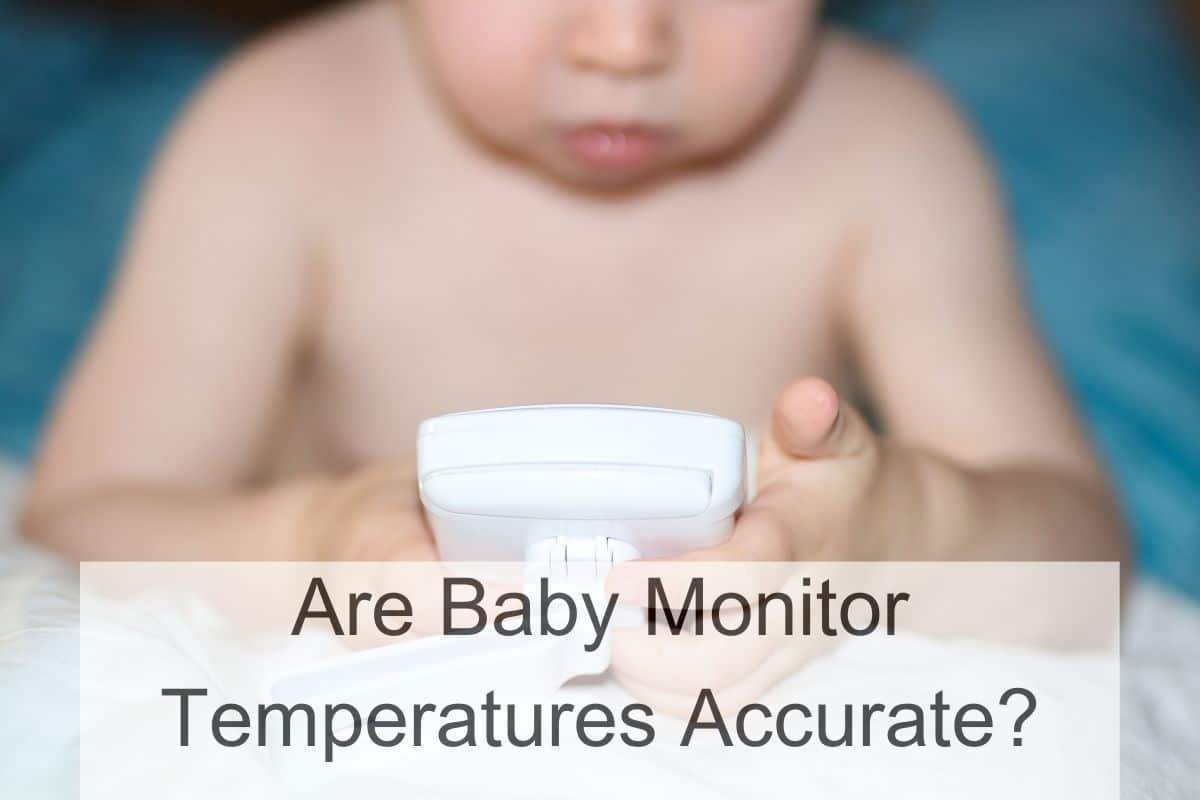As a parent or caregiver, one of the most important things you can do for your baby is to help them regulate their body temperature. Newborns are not able to regulate their body temperature as effectively as adults, which means they need extra help to stay warm or cool. But when can babies start to regulate their own body temperature?

According to experts, it takes some time for babies to develop the ability to regulate their own body temperature. In fact, newborns are not able to do so effectively until they are around 6 months old. This is why it is so important to keep newborns warm, especially premature babies or those with low birth weight, as they are at a higher risk of hypothermia.
As babies grow and develop, they become better at regulating their body temperature. By the time they are 6 months old, they should be able to maintain a stable body temperature on their own. However, it is still important to be mindful of the temperature around them and dress them appropriately for the weather.
Understanding Thermoregulation in Babies

As a pediatrician, I often get asked about when babies can regulate their body temperature. Thermoregulation is the ability of an organism to maintain its body temperature within certain boundaries, even when the surrounding temperature is different. In babies, this process can be challenging as they are not yet fully developed. Here are some key factors that contribute to thermoregulation in babies.
The Role of Brown Fat
Brown fat, also known as brown adipose tissue, is a special type of fat that generates heat. It is found in higher amounts in newborns and helps them to maintain their body temperature. Brown fat is activated when a baby is cold, and it burns calories to produce heat. This process is essential for newborns, especially premature babies, as they are not yet able to generate enough heat on their own.
Development of the Hypothalamus
The hypothalamus is a small region of the brain that plays a vital role in thermoregulation. It acts as a thermostat, monitoring the temperature of the blood and sending signals to the body to either generate or release heat. In babies, the hypothalamus is not yet fully developed, which can make it difficult for them to regulate their body temperature.
Milestones in Baby Temperature Regulation

As a new parent, it is natural to wonder when your baby will be able to regulate their own body temperature. Here are some milestones to keep in mind:
Newborn Phase
During the first few hours after birth, your baby may have trouble regulating their body temperature. According to UTSW MedBlog, “it can take a while for a newborn to regulate his or her own body temperature.” It is important to keep your newborn within a normal temperature range right after delivery. This can be achieved through warm blankets, skin-to-skin contact, and other sources of warmth such as a heat lamp.
First Three Months
As your baby grows, they will become better at regulating their body temperature. However, it is still important to monitor their temperature and ensure they are not too hot or too cold. According to Stanford Medicine Children’s Health, “infants younger than 3 months should be kept warm and should not be exposed to cold temperatures.”
Three to Six Months
By the time your baby is 3 to 6 months old, they should be better able to regulate their own body temperature. However, it is still important to dress them appropriately for the weather and monitor their temperature regularly. According to Children’s Hospital of Philadelphia, “infants gradually develop the ability to regulate their own temperature as they grow and mature.”
Six to Twelve Months
As your baby approaches their first birthday, they should be even better at regulating their body temperature. However, it is still important to dress them appropriately for the weather and monitor their temperature regularly. According to Medical News Today, “a normal temperature range for a baby is between 97.8°F and 99°F (36.5°C and 37.2°C).”
One Year and Beyond
By the time your baby is one year old, they should be able to regulate their body temperature much like an adult. However, it is still important to monitor their temperature and dress them appropriately for the weather. Remember, every child is different, so it is important to pay attention to your child’s individual needs.
Factors Affecting Temperature Regulation

As a newborn, I was not able to regulate my own body temperature. I relied on my environment and caregivers to keep me warm or cool enough. Even as I grew older, my ability to regulate my body temperature was not fully developed. Here are some factors that can affect a baby’s temperature regulation:
Environmental Conditions
The environment around me had a big impact on my body temperature. If the room was too cold, I would start to shiver and my skin would turn blue. If it was too hot, I would become sweaty and uncomfortable. It is important to keep the temperature of the room between 68-72°F (20-22°C) to help me maintain a comfortable body temperature.
Health and Illness
If I was sick, my body temperature would often rise. This is because my body was fighting off an infection. It is important to monitor my temperature when I am sick and take steps to bring it down if it gets too high. On the other hand, if I was born premature or had a low birth weight, I might not be able to regulate my own body temperature as well as a full-term baby.
Clothing and Swaddling
What I wore and how I was wrapped up also played a big role in my temperature regulation. I needed to wear clothing that was appropriate for the weather and not too tight or too loose. Swaddling me in a blanket could also help keep me warm and cozy. However, it is important not to over-swaddle me as this can cause me to overheat.
Signs of Temperature Dysregulation

As a parent, it’s important to know the signs of temperature dysregulation in your baby. Babies can lose heat rapidly, nearly 4 times faster than an adult. Premature and low-birthweight babies don’t have much body fat, and their bodies may not be ready to control their own temperature, even in a warm environment. Even full-term and healthy newborns may not be able to keep their body warm if the environment is too cold.
Hypothermia Symptoms
Hypothermia is a condition that occurs when a baby’s body temperature drops below the normal range. A baby with hypothermia may feel cold to the touch, have a low body temperature, and have trouble breathing. Other signs of hypothermia in a baby include:
- Pale or mottled skin
- Lethargy or lack of energy
- Weak or high-pitched cry
- Poor feeding or sucking
- Low blood sugar levels
If you notice any of these symptoms in your baby, it’s important to seek medical attention immediately.
Hyperthermia Symptoms
Hyperthermia is a condition that occurs when a baby’s body temperature rises above the normal range. A baby with hyperthermia may feel hot to the touch, have a high body temperature, and have trouble breathing. Other signs of hyperthermia in a baby include:
- Red, flushed skin
- Rapid breathing
- Rapid heart rate
- Irritability or fussiness
- Poor feeding or sucking
If you notice any of these symptoms in your baby, it’s important to seek medical attention immediately.
Safety Tips for Parents
As a parent, it is essential to ensure that your baby is warm enough and not overheated. Here are some safety tips to help you regulate your baby’s body temperature.
Monitoring Baby’s Temperature
It is crucial to monitor your baby’s temperature regularly. You can use a digital thermometer to take your baby’s temperature. The ideal temperature range for babies is between 97°F (36.1°C) and 100.4°F (38°C). If your baby’s temperature is outside of this range, consult your pediatrician.
Appropriate Dressing
Dressing your baby appropriately is essential to maintain a comfortable body temperature. Dress your baby in layers so you can add or remove clothing as needed. Avoid overdressing your baby, as this can cause overheating. A good rule of thumb is to dress your baby in one more layer than what you are wearing.
Sleep Environment Guidelines
Creating a safe sleep environment is crucial for regulating your baby’s body temperature. Place your baby on their back to sleep, and avoid using loose blankets or soft bedding. Use a sleep sack or wearable blanket to keep your baby warm without the risk of suffocation.
When to Seek Medical Attention
As a parent, it’s important to know when to seek medical attention for your baby’s body temperature. Here are some warning signs to watch for:
Warning Signs to Watch For
- Fever: If your baby is younger than 3 months old, contact your healthcare provider for any fever. If your baby is 3 to 6 months old and has a temperature up to 102 F (38.9 C) and seems sick or has a temperature higher than that, contact your healthcare provider.
- Low Body Temperature: Temperatures below the normal range may signal hypothermia, which is a dangerously low body temperature. Contact your healthcare provider if your baby’s temperature is below 97.7 F (36.5 C).
- Umbilical Area or Penis Redness or Bleeding: Contact your healthcare provider if your baby’s umbilical area or penis suddenly becomes red or starts to ooze or bleed.
Regular Pediatric Check-Ups
Regular pediatric check-ups are important for monitoring your baby’s growth and development, including their ability to regulate their body temperature. Your healthcare provider can provide guidance on how to keep your baby warm and healthy, as well as monitor for any potential issues. Be sure to attend all scheduled check-ups and bring up any concerns you may have.
Remember, as a parent, you know your baby best. If you notice any changes in their behavior, appetite, or temperature regulation, don’t hesitate to contact your healthcare provider. It’s always better to be safe than sorry when it comes to your baby’s health.

